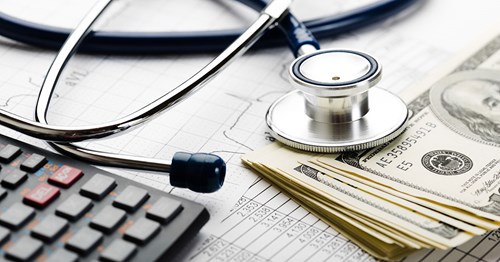RISE looks at recent headlines concerning social determinants of health (SDoH).

HHS awards nearly $1 billion in American Rescue Funds to improve health centers, support vulnerable communities
The U.S. Department of Health and Human Services (HHS) announced Tuesday that it awarded nearly $1 billion in American Rescue Plan funding to nearly 1,300 Health Resources and Services Administration (HRSA) Health Center Program-funded health centers across all 50 states, the District of Columbia, and the U.S. territories to assist health care construction and renovation projects.
The awards, which were made through the HRSA, will fund projects that support COVID-19 testing, treatment, and vaccination to ensure vulnerable and underserved communities and populations have equitable access to quality health care.
“Health centers are lifelines for many of our most vulnerable families across the country, especially amidst the pandemic,” Health and Human Services Secretary Xavier Becerra said in the announcement. “Thanks to American Rescue Plan funds, we’re modernizing facilities across the country to better meet the most pressing public health challenges associated with COVID-19. This historic investment means we get to expand access to care for COVID-19 testing, treatment and vaccination– all with an eye towards advancing equity.”
The health centers will use the funds for COVID-19 related capital needs, constructing new facilities, facility renovations, and new equipment, including telehealth technology, mobile medical vans, and freezers for vaccine storage.
AmeriHealth Caritas announces new company, Social Determinants of Health, Inc.
AmeriHealth Caritas, a national leader in Medicaid managed care for those most in need, announced the creation of a new company, Social Determinants of Health, Inc, according to the announcement released Tuesday. The company intends to address underlying root causes and acute health needs to build long-term resilience and improve life outcomes
“We know today that up to 80 percent of our health is tied to social determinants: things like housing, education, job training, transportation, and access to healthy foods. Your ZIP Code can have a much greater impact on how long you live, and on your quality of life, than your genetic code,” said Paul A. Tufano, chairman and CEO of AmeriHealth Caritas, in the statement. “That’s why we refer to the Social Determinants of LifeSM. We are looking beyond health outcomes and leveraging our unique expertise and grassroots approach to improve life outcomes. We need to help people overcome poverty and achieve their American Dream.”
To start their work in solving for SDoH, the company has made a Series B investment of $29 million in the California-based startup, Wider Circle, which builds tech-enabled, hyper-local health programs and peer-to-peer networks.
SAMHSA announces distribution of $825 million in grants to Community Mental Health Centers
The Substance Abuse and Mental Health Services Administration (SAMHSA) has distributed $825 million in funds to 231 Community Mental Health Centers (CMHCs) across the country, according to HHS. The Biden Administration committed to providing the funds in March 2021.
The grants, which comes from the Consolidated Appropriations Act of 2021 and the Coronavirus Response and Relief Supplement Act of 2021, aim to improve access to mental health and behavioral health amid the COVID-19 pandemic and will enable CMHCs to better support individuals who have serious emotional disturbance (SED) or serious mental illness (SMI), as well as individuals with SED or SMI and substance use disorders, otherwise known as a co-occurring disorder.
“Every American deserves access to behavioral health services in the communities where they live, and we recognize the urgent need to bolster those services for minority populations and those living in economically disadvantaged communities,” said Health and Human Services Assistant Secretary for Mental Health and Substance Use and the leader of SAMHSA Miriam E. Delphin-Rittmon, Ph.D. “The COVID-19 pandemic has challenged our ability to ensure timely access to treatment services and recovery supports. This funding will help CMHCs address local needs, which have become even more urgent in the past year.”
The awarded CMHCs are required to: create a behavioral health disparities impact statement no later than 60 days after receiving the grant; develop a quality-improvement plan to address under-resourced populations’ needs; and identify methods to develop policies and procedures to ensure adherence to the National Standard for Culturally and Linguistically Appropriate Services in Health and Health Care.
BCBS of Vermont’s role in new food insecurity diagnostic codes
Blue Cross Blue Shield (BCBS) of Vermont and the feedback from a nurse practitioner were key influencers in the new food insecurity diagnostic codes, which go into effect Oct. 1, according to a statement from BCBS of Vermont.
Almost four years ago, a family nurse practitioner approached BCBS of Vermont regarding a problem tracking food insecurity in the health care system. BCBS then worked with the provider and requested implementation of medical codes pertaining to food insecurity to the Centers for Medicare & Medicaid Services (CMS) and the Centers for Disease Control and Prevention. CMS approved the new diagnostic codes in August.
“In health care, codes are the way we communicate,” said Joshua Plavin, M.D., vice president and chief medical officer at Blue Cross and a practicing physician of Pediatric Internal Medicine, in the announcement. “These new codes are necessary for providers to be able to name what we see using the language we speak.”


